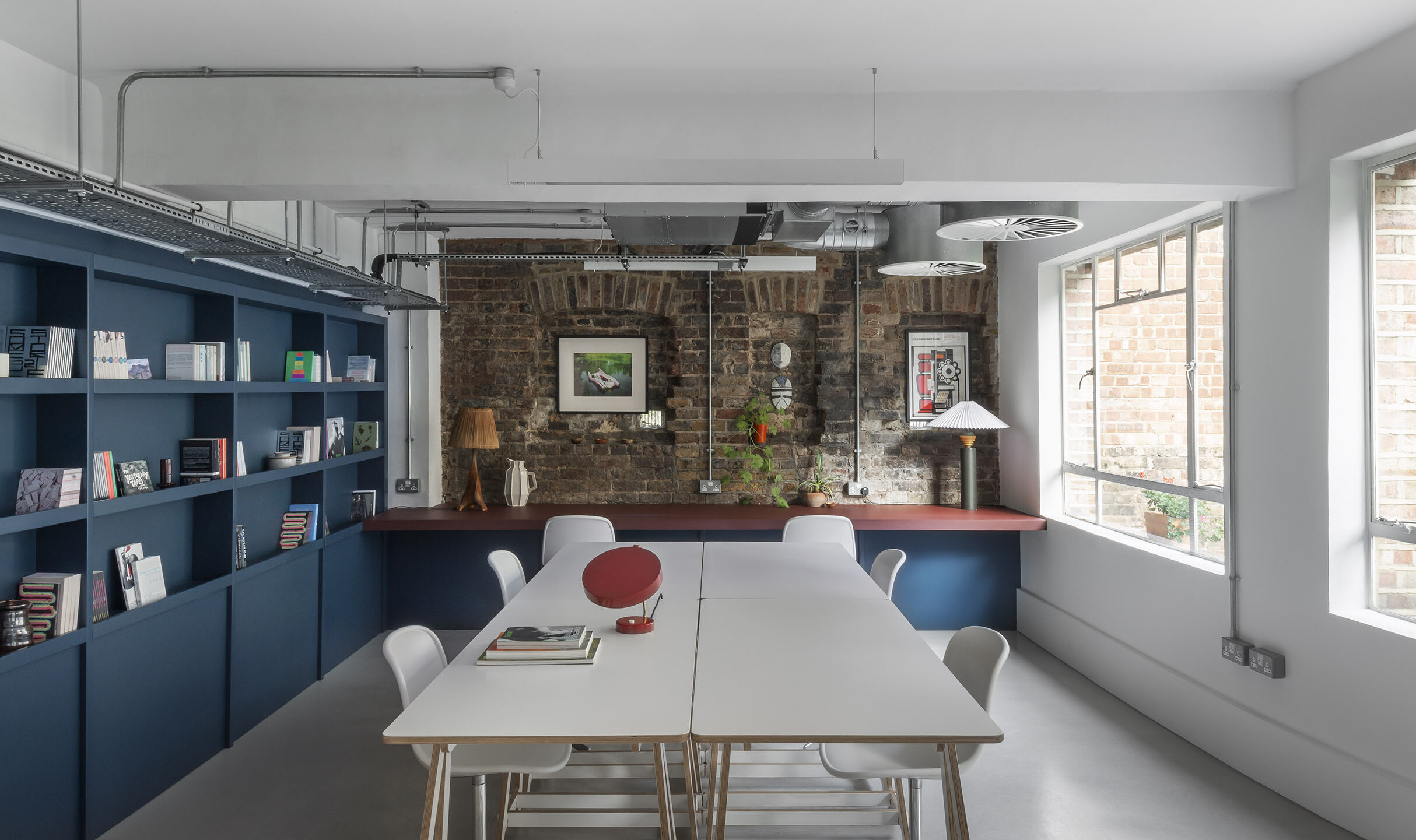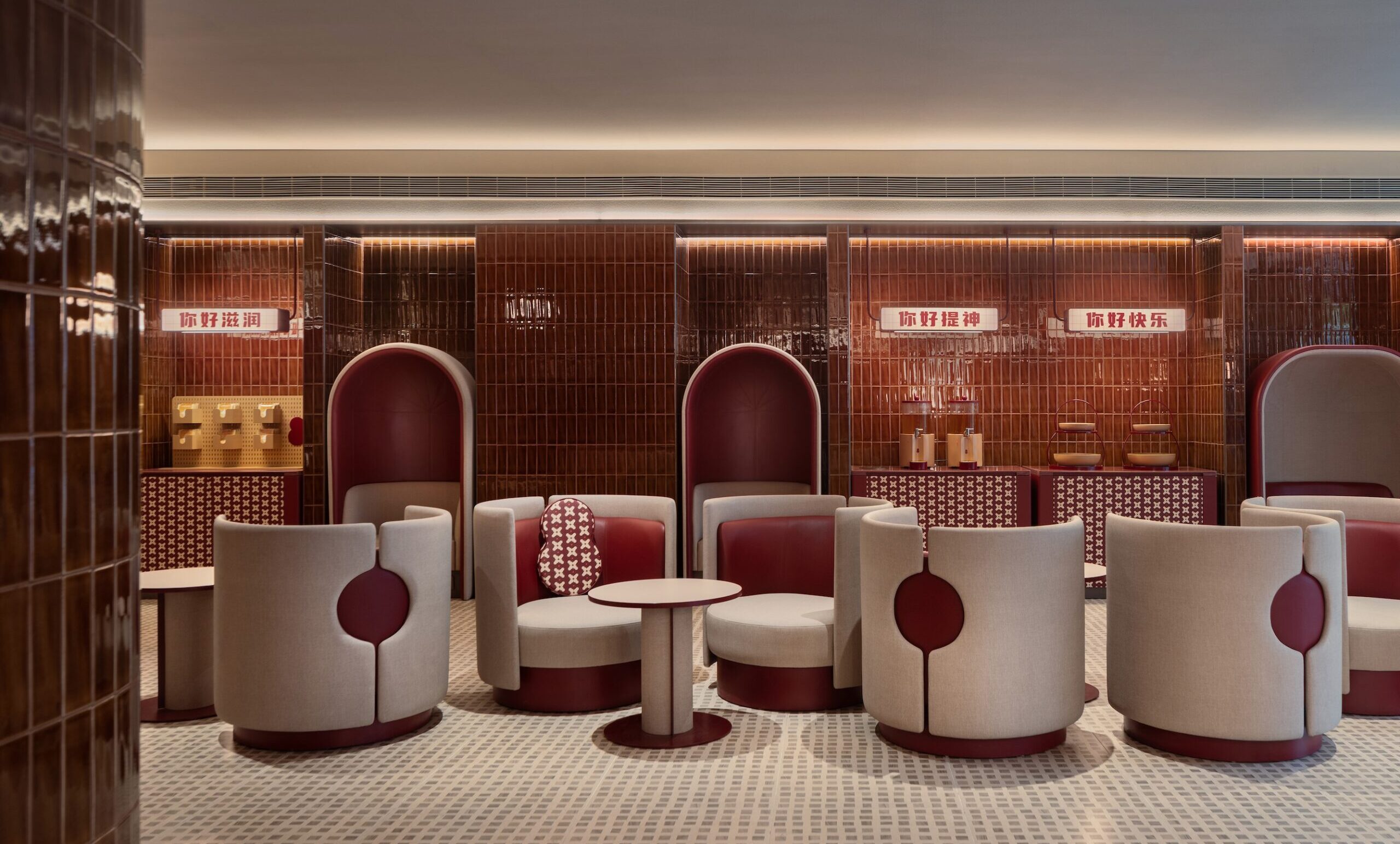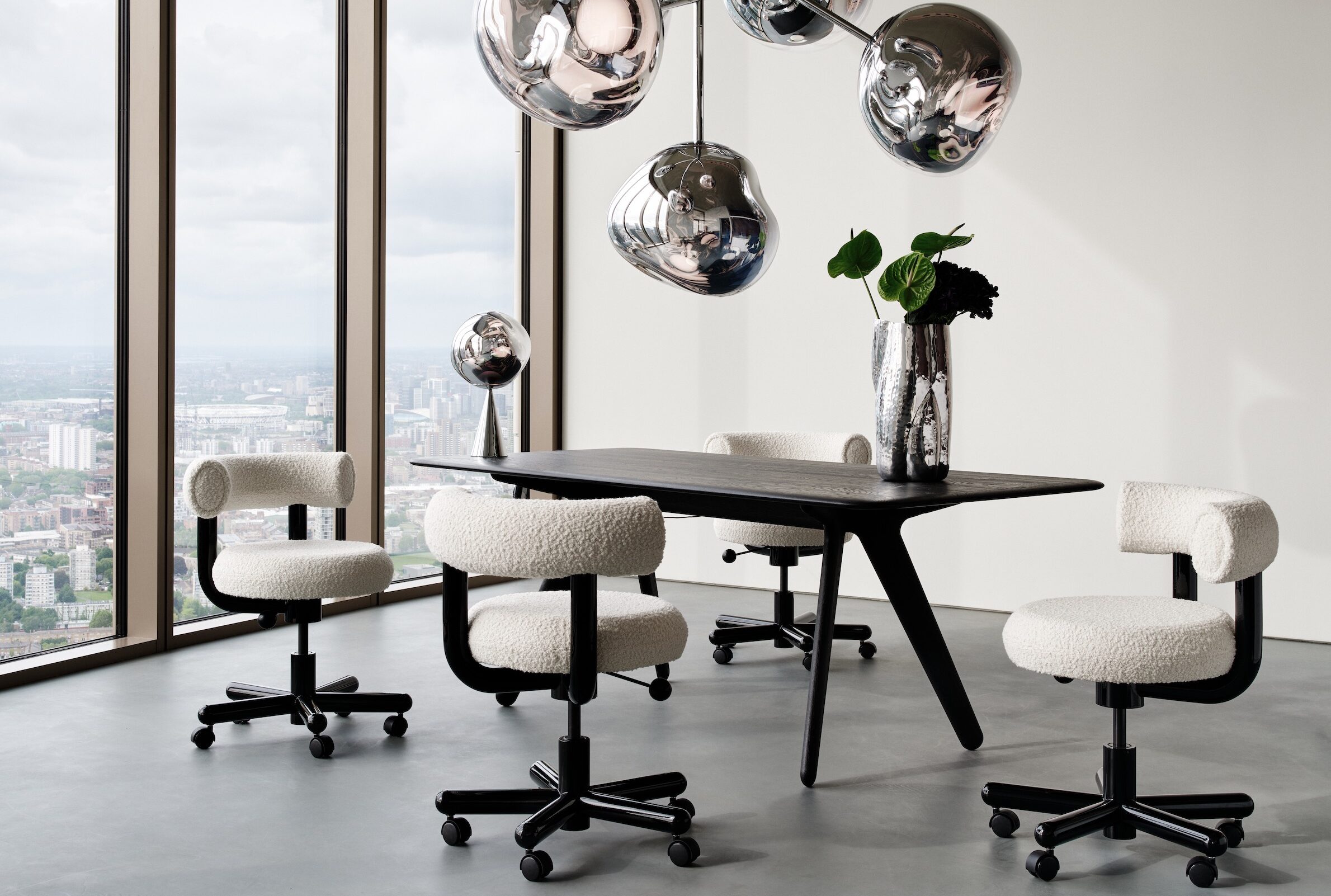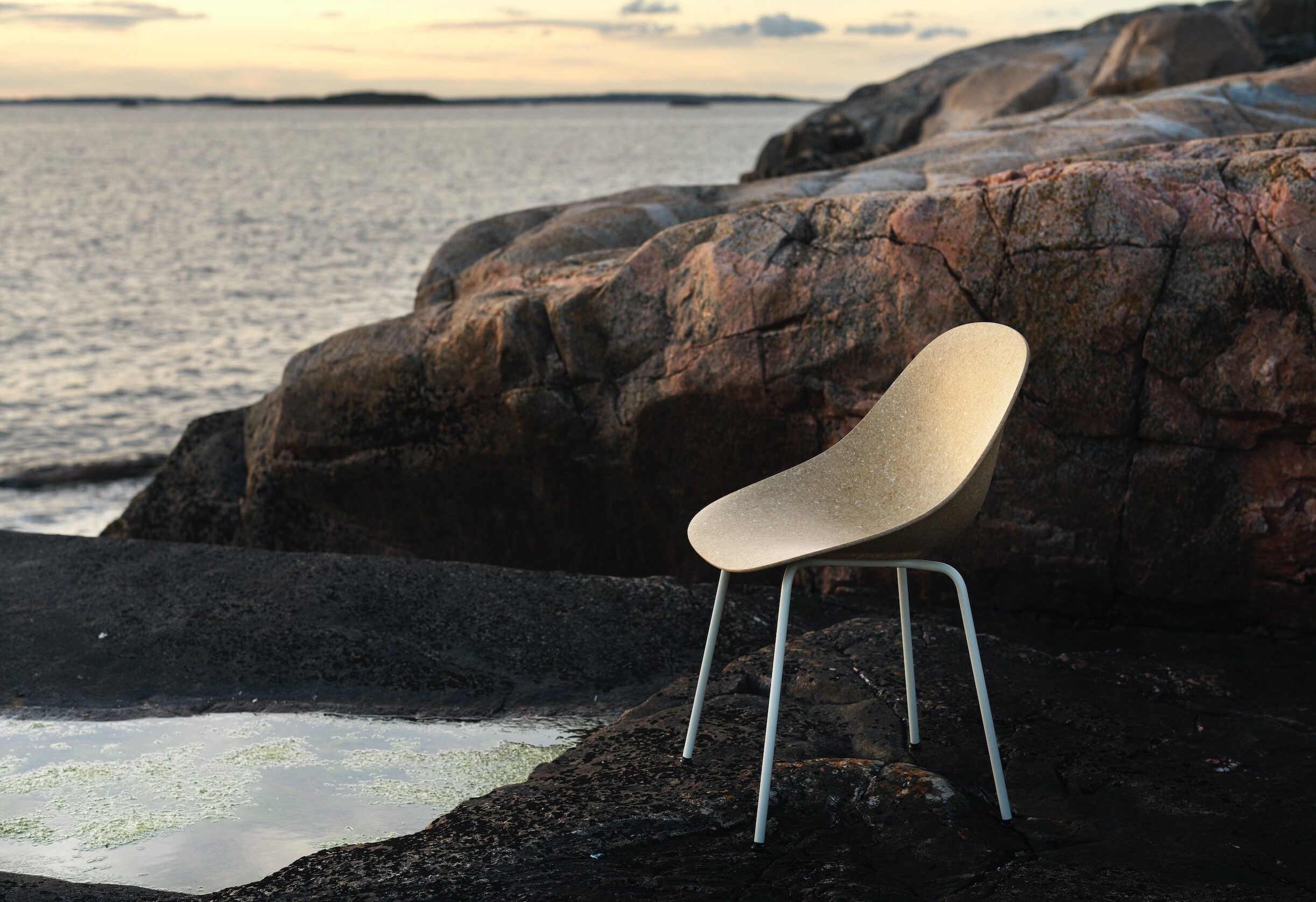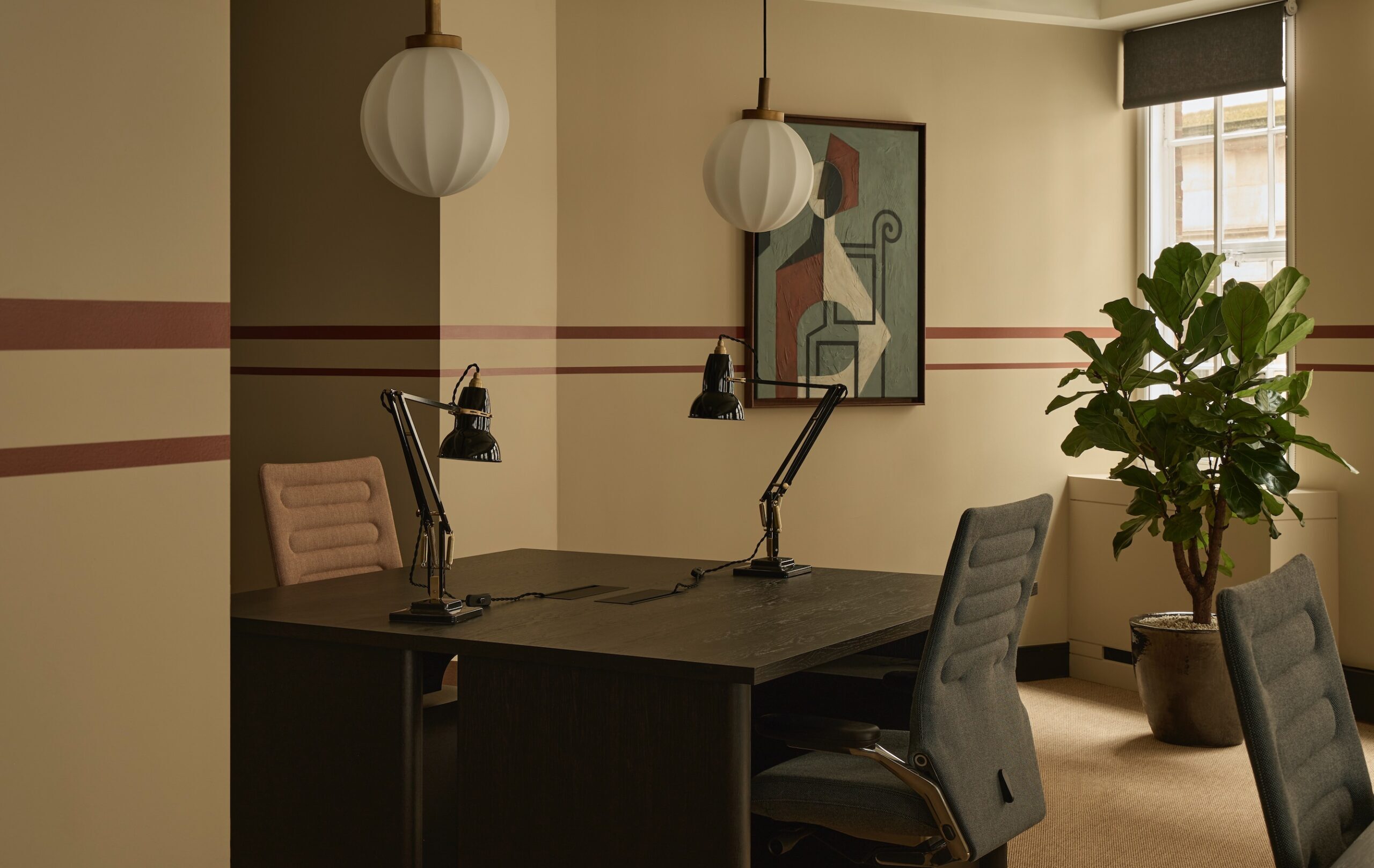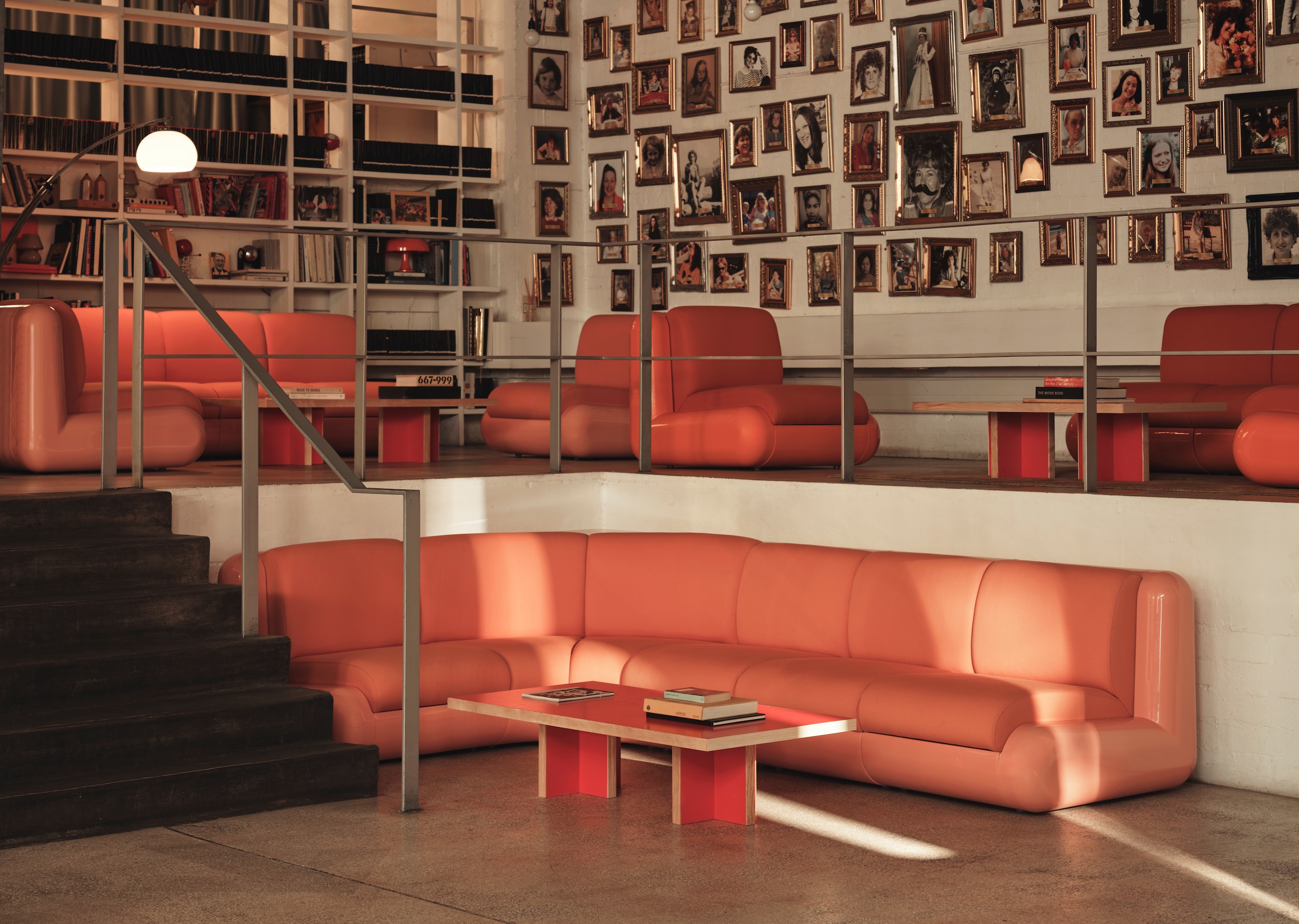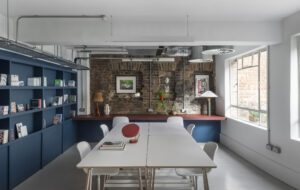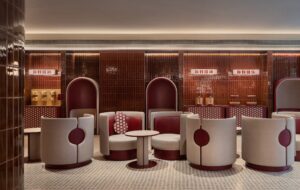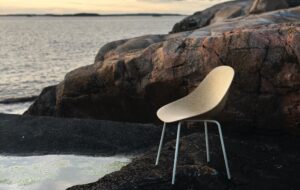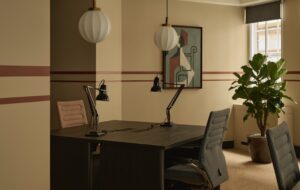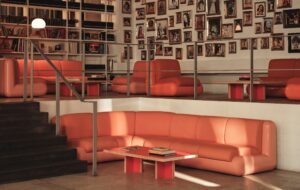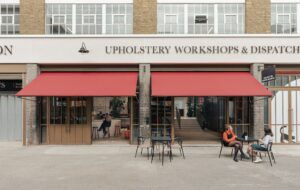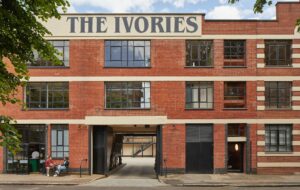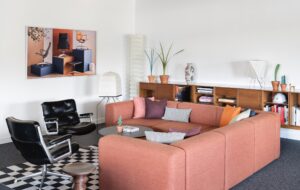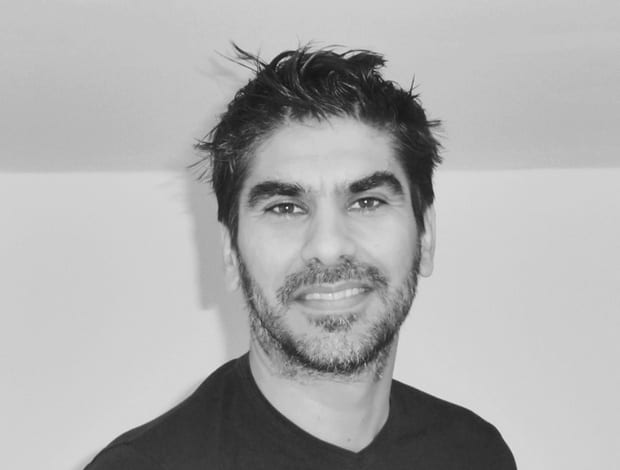 Konstantinos Labrinopoulos|The retrofit facade of Placebo Pharmacy uses perforated, aluminium screens to give the building a cyclindrical shape|KLab designs nearly all furniture and fittings for its projects, including this meeting table for Placebo|The Placebo offices sit above the retail outlet|Coloured glass accents brighten up the cellular office set-up of insurance company Gerling|KLab’s designs for Emerging Landscapes, a mixed-use scheme in Lefkada, Greece|Rusted, metallic panel installed on the facade of Guru Bar in Athens|Locally sourced canes for a sun shade on the F-Zein building|Partitions of translucent, corrugated sheet roll and galvanised steel discs in the F-Zein workspace|Bold, coloured glass makes a statement in the Cleverbank office||
Konstantinos Labrinopoulos|The retrofit facade of Placebo Pharmacy uses perforated, aluminium screens to give the building a cyclindrical shape|KLab designs nearly all furniture and fittings for its projects, including this meeting table for Placebo|The Placebo offices sit above the retail outlet|Coloured glass accents brighten up the cellular office set-up of insurance company Gerling|KLab’s designs for Emerging Landscapes, a mixed-use scheme in Lefkada, Greece|Rusted, metallic panel installed on the facade of Guru Bar in Athens|Locally sourced canes for a sun shade on the F-Zein building|Partitions of translucent, corrugated sheet roll and galvanised steel discs in the F-Zein workspace|Bold, coloured glass makes a statement in the Cleverbank office||
What recession?! Konstantinos Labrinopoulos, head of Greek practice KLab, believes the time is right for a move to the UK
Kinetic Lab of Architecture, otherwise known as KLab, is taking its show on the road to London. After sailing through the economic annihilation in Greece with hardly a gap in the job books, the firm feels ready to tackle the UK market. It’s a fairly ballsy move amidst all the belt-tightening currently underway here, but Konstantinos Labrinopoulos, who started the Athens-based firm in 2007, is a picture of confidence as we sit in the lobby of The Building Centre on Store Street to discuss KLab’s future.
After breaking off from KLMF, co-founded with Miltos Farmakis in 2001, Labrinopoulos has received international acclaim for a range of workplace, residential and civic projects in Greece, including the recent Emerging Landscapes mixed-use scheme in Lefkada, Greece and offices for Placebo Pharmacy and the extreme sports and experiential marketing company F-Zein.
“Right now it’s really busy and we’ve been so lucky despite the crisis – we have so many opportunities to build in Greece,” Labrinopoulos says. “It gives us the confidence to start the office in London. I think if we were miserable there and not doing well, we would be less inclined to say ‘yeah, let’s do it!’”
Fittingly, we’re nestled at a table next to a sprawling model of London as Labrinopoulos reveals his plans to start making architecture in the capital and thereby cementing KLab’s international status.
He has enlisted Scottish architect Mark Chapman to run the new hub (Chapman worked with the firm for two years in the Athens office, which will remain open) and they both feel the time is right to take the plunge.
“We were looking at the (economic) situation in Greece and it just seems that Britain is going to emerge quicker than Europe. Europe has got real problems,” Chapman explains. “London is a kind of centre for architecture – it’s probably one of the strongest places you can be. The opportunities exist and I think, particularly at this time, people are looking around more. They are not just going with the first architect they find.”
“We were looking at the economic situation in Greece and it seems that Britain is going to emerge quicker than Europe… Europe’s got real problems”
The UK is a totally different market from Greece says Labrinopoulos, not least because the end of the property bubble means clients here value an architect’s ability to do something innovative with the available resources rather than creating a shiny new toy. The bulk of architectural jobs in London are about working with existing stock, and refurbishment opportunities excite KLab because they can control every last detail.
“You just have to look at this model here (points to the London cityscape in the NLA lobby) to see that with the office blocks, it’s just shape-making,” says Chapman. “This is interesting, and people become very famous for doing this and we love them for that, but it’s just the skin in the end. So, the programme and the ideas and the smaller aspects of a project are what interest us.”
One gets the sense that Labrinopoulos has hit a metaphorical wall in Greece. He sees KLab as a hyper-creative source of architecture and wants to explore new territory.
However, he and Chapman are clear about one thing: they are not aspiring to be a corporate machine churning out projects. They want to remain a small operation.
“One of the reasons we are here in London is to find opportunities to do different types of projects than we are used to doing in Greece,” Labrinopoulos enthuses. “In the beginning of our career, we were doing interesting projects that didn’t cost a lot. Being in London gives us a chance to find those kinds of clients who want to do interesting stuff.”
Particularly during the boom, the firm became known for beautiful modernist houses as well as offices that pushed the boundaries of workplace design in Athens, a city that has been slow on the uptake of new ways of working, open plan seating and experimenting with low budget materials.
“We were looking at the (economic) situation in Greece and it just seems that Britain is going to emerge quicker than Europe. Europe has got real problems”
KLab’s office for F-Zein, for example, shows how the firm introduces high impact, low-tech materials to play with shapes and light.
Galvanised steel discs, 1.5m in diameter, were suspended from the ceiling, and translucent curved partitions, which can be picked up and easily moved, were constructed from corrugated polyester rolls and steel scaffolding to divide the space. Canes from a nearby reed bed form a simple and functional facade, which reduces heat gain during scorching Greek summers.
The Placebo Pharmacy retail shop and offices, completed last year, is also a showcase of KLab’s penchant for creating ethereal, almost otherworldly buildings.
The octagonal shape of the existing building was reformed into a cylinder with a retrofit facade – a series of perforated aluminium screens that give protection from the heat of the sun and create dappled patterns of light in the interior.
For insurance company Gerling, KLab was briefed to create cellular office space but “show something else as well”. Essentially, the company wanted a traditional set up with a bit of pizzazz and creativity, says the architect. Coloured glass was used throughout to visually connect the space.
“We tried to create fragmented spaces that have connection by cutting the corners of the cubes with glass, so you could visually penetrate. You had an enclosed space but you could penetrate through the edges.” In fact, coloured glass is a defining characteristic of KLab projects. It also pops up in the Placebo and Cleverbank offices, lending a slick, inorganic feel.
So far, KLab’s jobs in the UK are small-scale residential refurbishments but they’re hoping to suss more office projects like F-Zein.
“The clients that don’t have a lot of budget, they kind of leave you with freedom to do things because they say ‘okay, you’re not going to get a lot of money but I know what you’re capable of.’ They believe in you,” says Labrinopoulos.
In the face of all this uncertainty, Labrinopoulos, who graduated from the National Technical University of Athens (NTUA) and the Southern California Institute of Architecture Los Angeles, is chomping at the bit.
“Greece is a very small country and very competitive,” he muses. “Sometimes it doesn’t matter how good you are. Sometimes the better you are, the more people are afraid of you.” But still, he figures, the outlook is good. While browsing in the Pompidou bookshop recently, he saw KLab in a tome called Star Architects.
To him, this means they’ve got the world’s attention. “Our eyes have always been outside Greece. It’s better to be good in the city rather than first in the village. Or something like that.”

